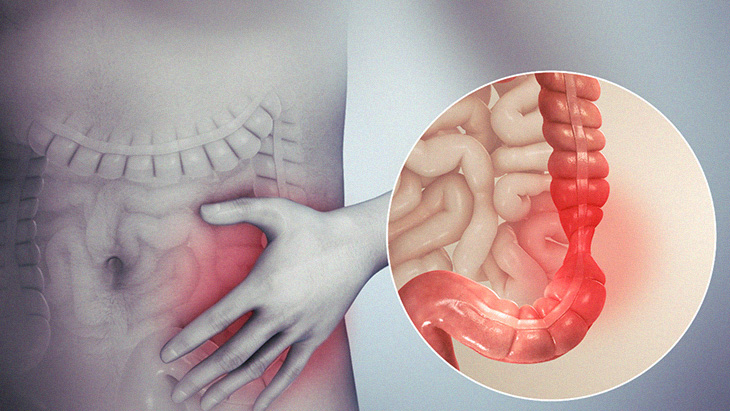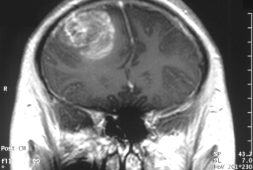Irritable Bowel Disease Could Have The Ability To Disrupt Mental Link By Cutting Off Gut-Brain Connection

IBD
Statistics show that around 30 percent of patients with inflammatory bowel disease (IBD) may experience depression, anxiety, or both. Studies have been made on this issue. Researchers used mice as a test subject and findings hint at the fact that impaired communication between the gut and the brain may partly be the culprit behind it all. Researchers were able to spot that a gateway between the bloodstream and cerebrospinal fluid may close to protect the brain from inflammation in times when flare-ups happen. Hence, this can cause a disruption in the gut-brain axis, which is a communication channel that happens between the gut and brain. This means that there may be a connection to mental health as well. Basically, IBD involves the chronic inflammation of the gut.
More on IBD
When it comes to IBD, there are two main types: Crohn’s disease, which affects any part of the gastrointestinal tract. Then, there’s ulcerative colitis, which only affects two parts: the large intestine and the rectum.
In 2015, there was an estimated 3.1 million adults in the United States alone who suffer from IBD. In percentage, around 1.3 percent of the adult population have been diagnosed with IBD. Those who suffer from it may feel any of the following symptoms such as persistent diarrhea, abdominal pain, weight loss, and fatigue.
According to one study made, they found that around 30 percent of those who suffer from IBD also experience depression, anxiety, or even both. It’s the pain and discomfort that go with it that affects them greatly. Those who are victims of certain chronic illnesses increase their likelihood of developing mental health illnesses. However, that does not seem to be the entire case with IBD.
“While the overall impact of the disease on overall quality of life no doubt plays an important role in triggering anxiety and depression in IBD, there is also increasing evidence of direct biological connections between IBD-associated inflammation and neuropsychiatric diseases,” explained Dr. Gerard Honig. He is the director of research innovation at the Crohn’s & Colitis Foundation in New York, NY. He further explained with Medical News Today, “Anxiety and depression are, in fact, experienced by a large proportion of patients affected by [IBD].”
“These comorbid conditions are also associated with worsened IBD outcomes,” the doctor further stated. And as what the experts from Crohn’s & Colitis UK say, feelings of stress, anxiety, or depression can trigger new symptoms in the gut area. A newly published study even states how IBD directly affects the brain. It does so by disrupting the gut-brain axis.
The Connection between Gut and Brain
So, what is the gut-brain axis? This is a two-way channel of communication between the gut and the central nervous system. The microorganisms that live and thrive in the gut play an essential and stark role in the relationship. It’s also important to note that the findings to date have been mainly performed in rodent models in this new study.
The researchers found that inflammation in the gut could be why there’s a close in a key gateway in this communication system that oversees and manages the exchange of signals between the blood and cerebrospinal fluid (CSF). This is not like the blood-brain barrier as this hinders large molecules in the bloodstream from entering the brain. The gateway between the CSF and blood, on the other hand, usually allows the passage of smaller molecules.
The researchers also discovered how the area responds to inflammatory signals from the gut by closing it. They assumed that this was the body’s way of preventing the inflammation from spreading to the brain. The research done in the mouse model of IBD show how the closure of the gateway hindered and wreaked havoc in memory as well as caused anxiety.
The study performed refutes the popular idea that brain inflammation in IBD leads to cognitive and psychiatric symptoms. In fact, the details appear in the journal Science. The authors then concluded, “Our data support the possibility that at least part of the behavioral and cognitive alterations that have been described in patients with IBD may result not from the enhanced inflammation, as generally hypothesized, but rather from the defense strategy activated by the organism to protect the brain from damage and guarantee its function.”
The Blood-CSF Barrier
The barrier between the bloodstream and CSF is made up of a membrane in a specialized region that’s found at the base of the brain. This is also known as the choroid plexus. “Under healthy conditions, the choroid plexus connects the brain with the rest of the organism for both nutrient and metabolite exchange,” explained co-senior author Dr. Maria Rescigno. She is from Humanitas University and Humanitas Hospital in Milan, Italy.
“During intestinal inflammation, in order to avoid inflammation further propagating to the brain, the choroid plexus closes down, and this interaction with the rest of the organism is interrupted,” Dr. Resigno also shared with MNT.
Previous research has also been performed by the same scientists and this showed a “gut vascular barrier.” Its main job was to oftentimes prevent bacteria from passing from the gut to the liver through the circulatory system. They discovered how inflammation in the intestines can cause disruptions in this barrier. As a result, bacteria spreads to the liver and stimulates inflammation in the other areas of the body.
The new study found proof that those with ulcerative colitis have an compromised gut vascular barrier. They were able to confirm that this was the case in the mouse model they made of ulcerative colitis. There were subsequent experiments that happened as well, and these were performed in sets. They used mice and the rodents showed that gut inflammation moves further to trigger the shutdown of the blood-CSF barrier found in the choroid plexus.
Closure in the said barrier was linked to the changes in the behavior of the mice. They noticed that movement and exploratory activity was visibly reduced. On the other hand, there also remained a chance that the pain of ulcerative colitis rather than the shutdown caused these said changes. Hence, to make sure that they ruled out every possibility, the scientists studied genetically engineered mice in which the barrier stayed close even when inflammation hadn’t taken place.
They then compared the mice with normal animals. What they found was that these mice also showed symptoms of anxiety-like behavior. They also performed worse on standard lab tests of episodic memory.
Can Communication be Restored?
Overall, the research had interesting findings. The outcome hints how the closure of this brain barrier due to gut inflammation may lead to anxiety and depression that some people with IBD go through.
“We observe that closure of the choroid plexus isolates the brain and leads to anxiety-like behaviors and defects in episodic memory,” Prof. Rescigno explained to MNT. She also added, “We do not know whether other defects may be occurring.”
The authors came up with a conclusion and they said that it may be possible to come up with treatments that address healthy communication between the gut and the brain in several conditions, especially when it comes to gut inflammation.
Like most studies performed, this one comes with a major limitation as well. This study was dependent on a mouse model of ulcerative colitis. The relationship between the gut and brain in people may be more complex. Thus, it’s imperative that they conduct human studies to further clarify and clearly explicate the possible link between IBD and mental health.



